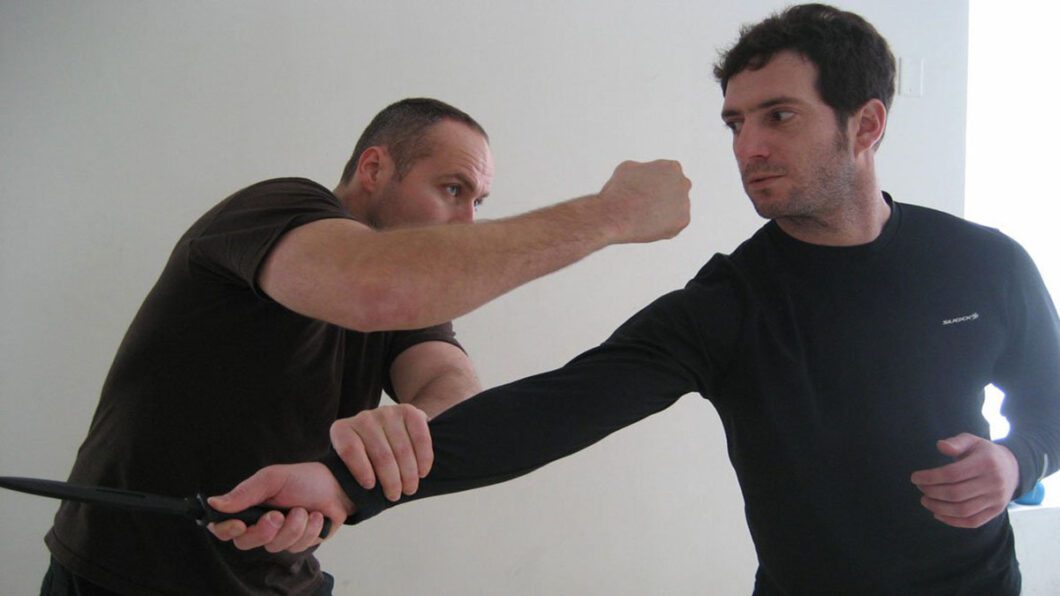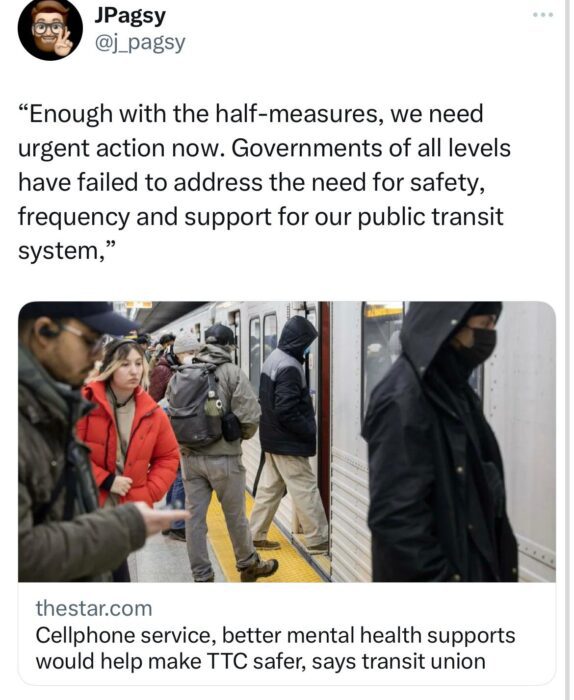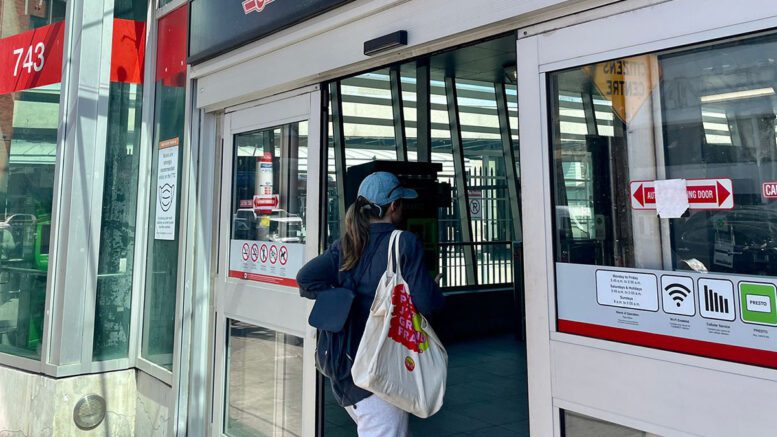Torontonians are seeking self-defence workshops after the trend of violent attacks on the TTC.
But violence on the subway is a bigger issue than just individual protection, some advocates say.
“I think that safety on public transit is a systemic issue,” said Monica Mason, coordinator of TTCriders, a public transit advocacy group. “It’s not up to the individual to protect themselves on transit.”
People are concerned about their safety and public transit but it’s not their responsibility to protect themselves but the government’s responsibility to invest to improve the service, according to Mason.
She believes the TTC service’s recent cut to transit routes in Toronto will make the situation worse by creating longer waits.

“The solution is to have transit ambassadors, so people who are there talk to people on the subway and create a second set of eyes,” Mason said. “Having more staff and more supportive staff on the system is the only thing the government can do along with reversing these service cuts.”
Christopher Gagne, head instructor at Toronto Krav Maga Academy, is one of the instructors teaching the self-defence classes.
He co-founded the Civilian Self-Defence Academy along with Joey De Los Reyes after multiple incidents on the subway. The workshops are taking place at FIIT Co. in Leslieville.

“Over the last two years, actually, it’s been a long time coming. We have many people who have approached us via email, personal conversations, and phone calls, asking for something about being safer on public transit,” says Gagne.
One of the main things they teach in the workshop is to look around and try to understand what people are doing with their body language, keep their eyes open and avoid wearing headphones, according to Gagne.
“If you have a gut feeling that, if someone is acting strange, it’s not a bad idea to get off the subway,” Gagne said. “For example, leave that stop or not get into an elevator or what have you. Follow your intuition and trust your gut.”

“I’ve seen more incidents or potential incidents on public transit these days. And I suspect that’s a follow-up from COVID-19,” he said. “There are some macro factors happening with increased homelessness, the strain on mental health, social service resources.”
Personal Experience
Jenif Sorathiya, an immigrant from India who takes the subway daily, believes learning self-defence is necessary for everyone, regardless if they are taking the TTC or not.
“When I travel on the TTC I don’t feel afraid or insecure. I feel secure because there are people around me that are good and are helping me when I need them,” Sorathiya said.
“In every country these things happen, in Canada or India, just be aware and be careful with people around you,” he said.
Sorathiya also believes the TTC should have more guards to ensure people are having the help they need.
Mason said that funding is needed from the government and people need to speak up.
“I would say you should call your city councillor. Call your MPP and call your MP and tell them that we need to have a long-term investment in transit solutions. It’s of that comes with funding. I would say get involved and call your elected officials,” Mason said.
CORRECTION: An earlier version of this story misspelled Monica Mason’s last name.

